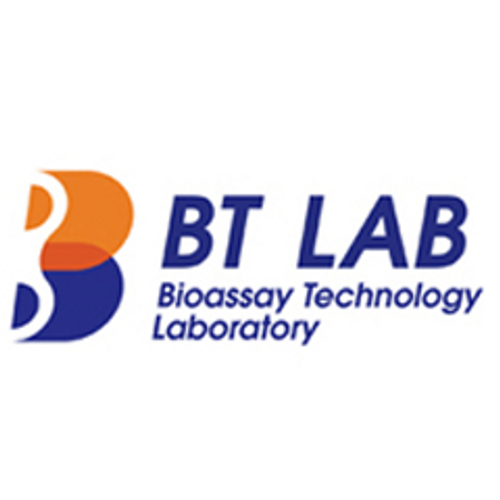Product Description
Mouse CAMP-dependent protein kinase catalytic subunit alpha (PRKACA) ELISA Kit | AE26009MO | Abebio
Species Reactivity: Mouse (Mus musculus)
Abbreviation: PRKACA
Alternative Name: MGC102831; MGC48865; PKACA; PKA C-alpha|cAMP-dependent protein kinase catalytic subunit alpha|cAMP-dependent protein kinase catalytic subunit alpha; isoform 1|protein kinase A catalytic subunit
Application: ELISA
Range: Request Information
Sensitivity: Request Information
Intra-Assay: ≤5.2%
Inter-Assay: ≤9.7%
Recovery: 1, 05
Sample Type: Serum, Plasma, Other biological fluids
Detection Method: Sandwich
Analysis Method : Quantitive
Test Principale: This assay employs a two-site sandwich ELISA to quantitate PRKACA in samples. An antibody specific for PRKACA has been pre-coated onto a microplate. Standards and samples are pipetted into the wells and anyPRKACA present is bound by the immobilized antibody. After removing any unbound substances, a biotin-conjugated antibody specific for PRKACA is added to the wells. After washing, Streptavidin conjugated Horseradish Peroxidase (HRP) is added to the wells. Following a wash to remove any unbound avidin-enzyme reagent, a substrate solution is added to the wells and color develops in proportion to the amount of PRKACA bound in the initial step. The color development is stopped and the intensity of the color is measured.
Product Overview: cAMP is a signaling molecule important for a variety of cellular functions. cAMP exerts its effects by activating the AMP-activated protein kinase (AMPK), which transduces the signal through phosphorylation of different target proteins. The inactive holoenzyme of AMPK is a tetramer composed of two regulatory and two catalytic subunits. cAMP causes the dissociation of the inactive holoenzyme into a dimer of regulatory subunits bound to four cAMP and two free monomeric catalytic subunits. Four different regulatory subunits and three catalytic subunits of AMPK have been identified in humans. PRKACais a member of the Ser/Thr protein kinase family and is a catalytic subunit of AMPK. Alternatively spliced transcript variants encoding distinct isoforms have been observed.
Stability: The stability of ELISA kit is determined by the loss rate of activity. The loss rate of this kit is less than 5% within the expiration date under appropriate storage condition. The loss rate was determined by accelerated thermal degradation test. Keep the kit at 37°C for 4 and 7 days, and compare O.D.values of the kit kept at 37°C with that of at recommended temperature. (referring from China Biological Products Standard, which was calculated by the Arrhenius equation. For ELISA kit, 4 days storage at 37°C can be considered as 6 months at 2 - 8°C, which means 7 days at 37°C equaling 12 months at 2 - 8°C) .
 Euro
Euro
 USD
USD
 British Pound
British Pound
 NULL
NULL








